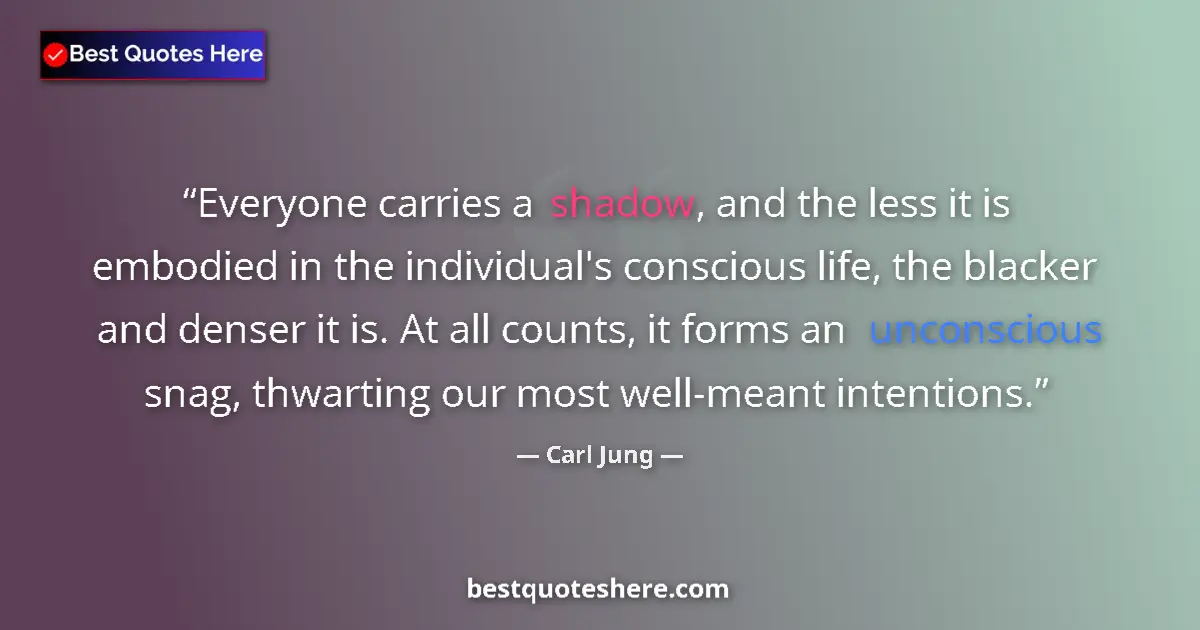"Everyone carries a shadow, and the less..." - Quote by Carl Jung
Everyone carries a shadow, and the less it is embodied in the individual's conscious life, the blacker and denser it is. At all counts, it forms an unconscious snag, thwarting our most well-meant intentions.
An image illustrating the quote: "Everyone carries a shadow, and the less it is embodied in the individual's consc..."
More on Shadow “Wo die Liebe herrscht, da gibt es keinen machtwillen, und wo die macht den vorrang hat, da fehlt die Liebe. Das eine ist der Schatten des andern.Translation: Where love rules, there is no will to power; and where power predominates, there love is lacking. The one is the shadow of the other.” “We are convinced that certain people have all the bad qualities we do not know in ourselves.” “The Shadow is a moral problem that challenges the whole ego-personality, for no one can become conscious of the shadow without considerable moral effort. To become conscious of it involves recognizing the dark aspects of the personality as present and real. This act is the essential condition for any kind of self-knowledge, and it therefore, as a rule, meets with considerable resistance. Indeed, self-knowledge as a psychotherapuetic measure frequently requires much painstaking work extending over a long period of time.” More on Unconscious “A man likes to believe that he is the master of his soul. But as long as he is unable to control his moods and emotions, or to be conscious of the myriad secret ways in which unconscious factors insinuate themselves into his arrangements and decisions, he is certainly not his own master.” “As soon as the dialogue between two people touches on something fundamental, essential, numinous, and a certain rapport is felt, it gives rise to a phenomenon which Lévy-Bruhl fittingly called participation mystique. It is an unconscious identity in which two individual psychic spheres interpenetrate to such a degree that it is impossible to say what belongs to whom.” “How else could it have occurred to man to divide the cosmos, on the analogy of day and night, summer and winter, into a bright day-world and a dark night-world peopled with fabulous monsters, unless he had the prototype of such a division in himself, in the polarity between the conscious and the invisible and unknowable unconscious?”
